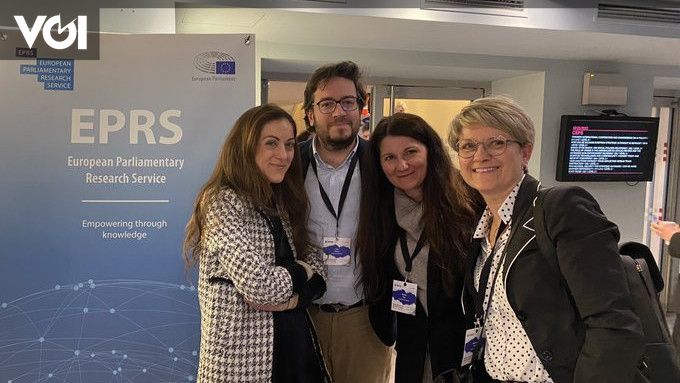EPRS Explores the Opportunities and Challenges for Children in the Metaverse
2 min read
JAKARTA – The European Parliamentary Research Service (EPRS), a government think tank for the European Union, recently published a letter discussing opportunities and challenges for children in the metaverse.
The author of the post, EPRS policy analyst Maria Niestadt, highlighted how the metaverse can stimulate children’s creativity, motivation to learn, and even aid in their recovery from illnesses. It also offers unique cultural and social experiences they may not have access to otherwise.
Despite the benefits, the EPRS also outlined challenges that the EU needs to address, such as safeguarding children from potential mental and physical harm resulting from the use of virtual reality headsets and addressing security and privacy concerns.
Metaverse Opportunities
The metaverse presents numerous opportunities for children, as stated by the EPRS. While not advocating for unrestrained use of virtual reality technology by children, the think tank emphasized its positive applications.
“Virtual world technology can be leveraged for diagnosing and treating various mental and physical health conditions in children, promoting physical fitness, preparing them for psychological challenges, and aiding in their rehabilitation,” explained the EPRS.
Other opportunities include immersive educational experiences that delve into history and culture and facilitate positive social interactions.
Metaverse Challenges
Despite the promising opportunities, the EPRS identified several challenges that need to be addressed to safeguard EU children from potential risks associated with metaverse technology.
Main concerns revolve around the adverse effects of prolonged exposure to the digital world and associated devices on children’s mental and physical well-being, including social isolation, exposure to harassment, and physical discomfort.
One legislative challenge involves determining the appropriate age for children to engage in the metaverse, which is currently at the discretion of private sector producers.
“Moreover, VR headset manufacturers typically set a minimum age requirement for device usage, with a trend towards lowering this age limit. For instance, in 2013, Meta reduced the minimum age for its Quest headset from 13 to 10 years,” noted the EPRS.
Overall, the metaverse landscape in the European Union is evolving as regulators explore future strategies while relying on self-regulation by the private sector based on existing laws and internal company guidelines.
Source link
#EPRS #Discusses #Childrens #Opportunities #Challenges #Metaverse





